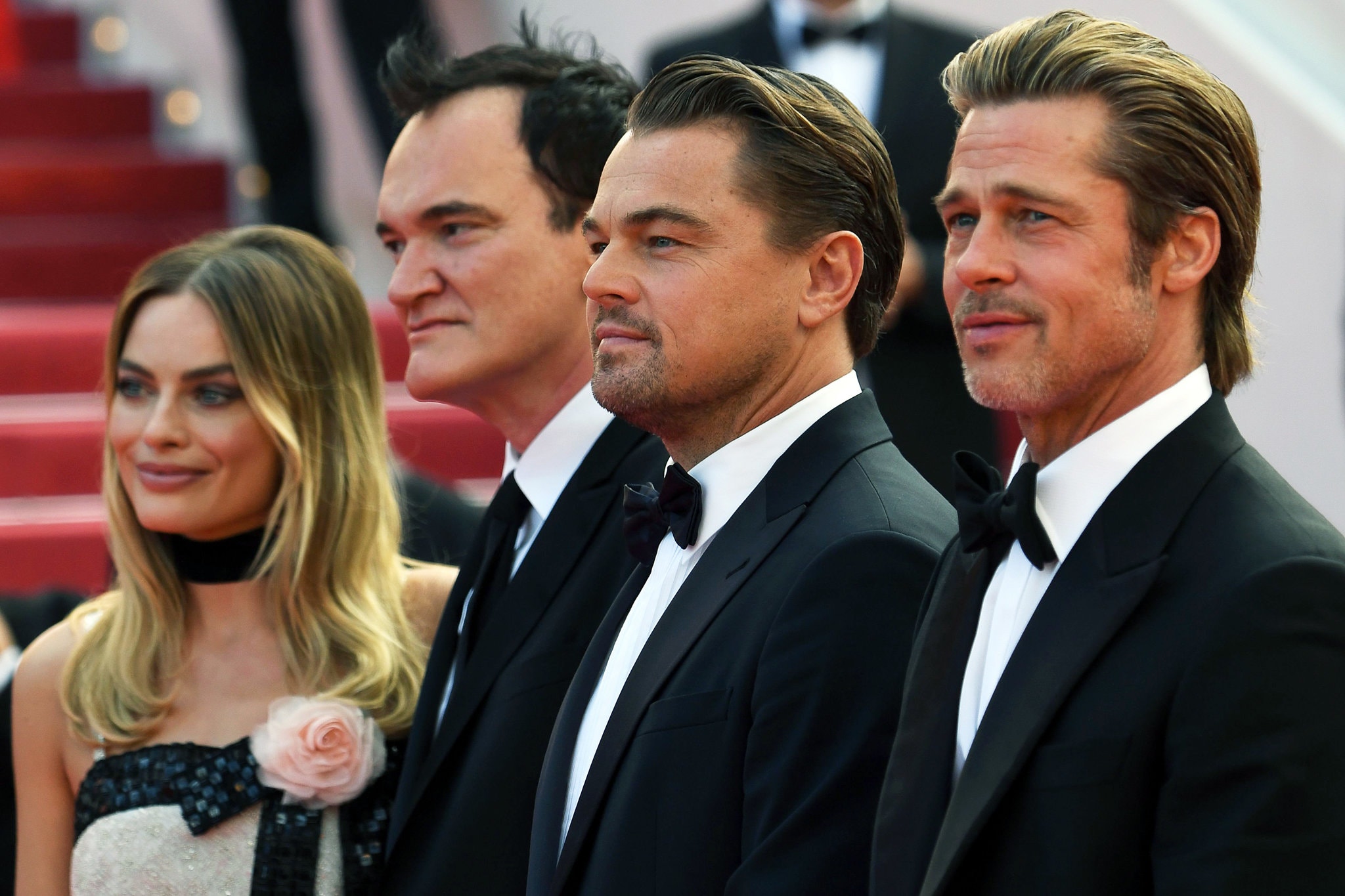Infamous director and writer Quentin Tarantino took home two Golden Globe wins at the 2020 awards for his tenth creation, Once Upon a Time in Hollywood.
The movie stars Leonardo Dicaprio as borderline washed-up western actor, Rick Dalton, and Brad Pitt as his stuntman and best friend, Cliff Booth. Their storyline is interwoven with that of Sharon Tate, played by Margot Robbie, in what Tarantino stated is the closest thing to his film Pulp Fiction (1994) in terms of multiple parallel storylines.
The movie was awarded Best Screenplay, which Tarantino is no stranger to. He was nominated for the same award for The Hateful Eight (2016) and Inglourious Basterds (2010) and was the winner for Django Unchained (2013) and Pulp Fiction (1995).
The writing of the movie was well deserving of the award, taking on a trope no stranger to Tarantino in altering a classic tragedy or injustice from history and creating a happy ending for the so-called Tarantino multiverse, which is suspected to all be connected. Warning, spoilers ahead.
The movie presents a dynamic duo story, with Dalton representing “old Hollywood” as he stars in mainly western, a genre that was dying out by the early and mid-’60s. His concerns about his career in an ever-changing scene, hungry for new and young faces, is assuaged by his best friend. Booth had previously worked as his stuntman but has obvious troubles finding work mostly due to rumors that he had murdered his wife.
Booth is representative of the Hollywood hero, stuntmen known for taking the beating in our favorite superhero and action movies. He is brave and doesn’t shy away from a fight, but he is also loyal and always looking out for his friend, driving him around everywhere when Dalton’s license is suspended after too many drinking and driving incidents.
Early in the movie, a man resembling Charles Manson comes to the front door of Dalton’s home looking for someone named Terry Melcher, who previously resided in the home. In the movie, Dalton moved in right after Melcher, and directly next door to Sharon Tate and Roman Polanksi who represent new Hollywood, an elite group that Dalton desperately wants to be a part of, even stating that he was one pool party away from being in a Roman Polanksi directed movie.
In reality, Terry Melcher was a music producer who turned down Manson, who at one time was a struggling musician. Polanski and Sharon Tate moved into the house after Melcher, not next door, and this is how Manson came to know and acquire the two as targets, eventually killing Sharon Tate and her unborn child along with some family friends staying at the Tate-Polanski residence.
Throughout the movie, we see some of the famed and classic Tarantino multiple storylines being portrayed. For example, Tate goes and sees one of her own movies in a theatre, Dalton stars in a new western where he completes some of the best acting of his life as well as acquiring a flamethrower, and Booth feeds his beloved dog, a very muscular pitbull named Brandy.
Booth picks up a hitchhiking hippie and travels with her to Spahn Movie Ranch, where he used to shoot westerns, which is now being used to house the Manson Family. He meets characters that are sure to return later in the film, and makes enemies out of the entire commune when he implies that something suspicious is underway, and punches one of the “sons” multiple times.
After a long journey through Dalton’s career, the film crescendos with the Manson family arriving to kill some “pigs” or Hollywood elites. These final scenes are what put the movie over the top for the Best Screenplay award. In actual history, the Manson Family Murders, specifically the death of a pregnant woman and Hollywood starlet Sharon Tate, were known as the death of the ’60s, a time filled with color and glamour.
Tarantino places Booth and Dalton between Manson and the actual victims, which masterfully allows for that time period to continue forever, and erases the stains of the tragedy from history. In the greatest and perhaps most well-written scene of the film, Booth releases his aforementioned dog Brandy on the intruders, and together they murder all but one of their crazed attackers.
Dalton is floating in the pool when one of the hippies makes her way outside, covered in broken glass and blood, screaming and flailing hysterically. This is when the flame thrower from earlier, which has been collecting dust in Dalton’s toolshed, comes in handy. Dalton burns her to a crisp, and in doing so, the audience sees the prevention of the tragedy that rocked young America.
The most significant moment in the film, and possibly Tarantino’s finest moment, was when Polanski comes over to check on his neighbor after cops and paramedics have left. He and Sharon invite Dalton over, therefore metaphorically signifying his cross from old Hollywood to new Hollywood.
This conclusion of the story releases the tension that has been built over the course of the movie in watching a failing career and what we previously thought was a predetermined historical event turn out differently than it did in reality.
Of course, the impeccable acting by some of the most talented names in Hollywood helped to illustrate the story, but the real shining star of the movie was the script. The quips and back and forth banter mixed with the fairytale storyline made the movie a pleasure to watch, and certainly deserving of the Best Screenplay Golden Globe.
